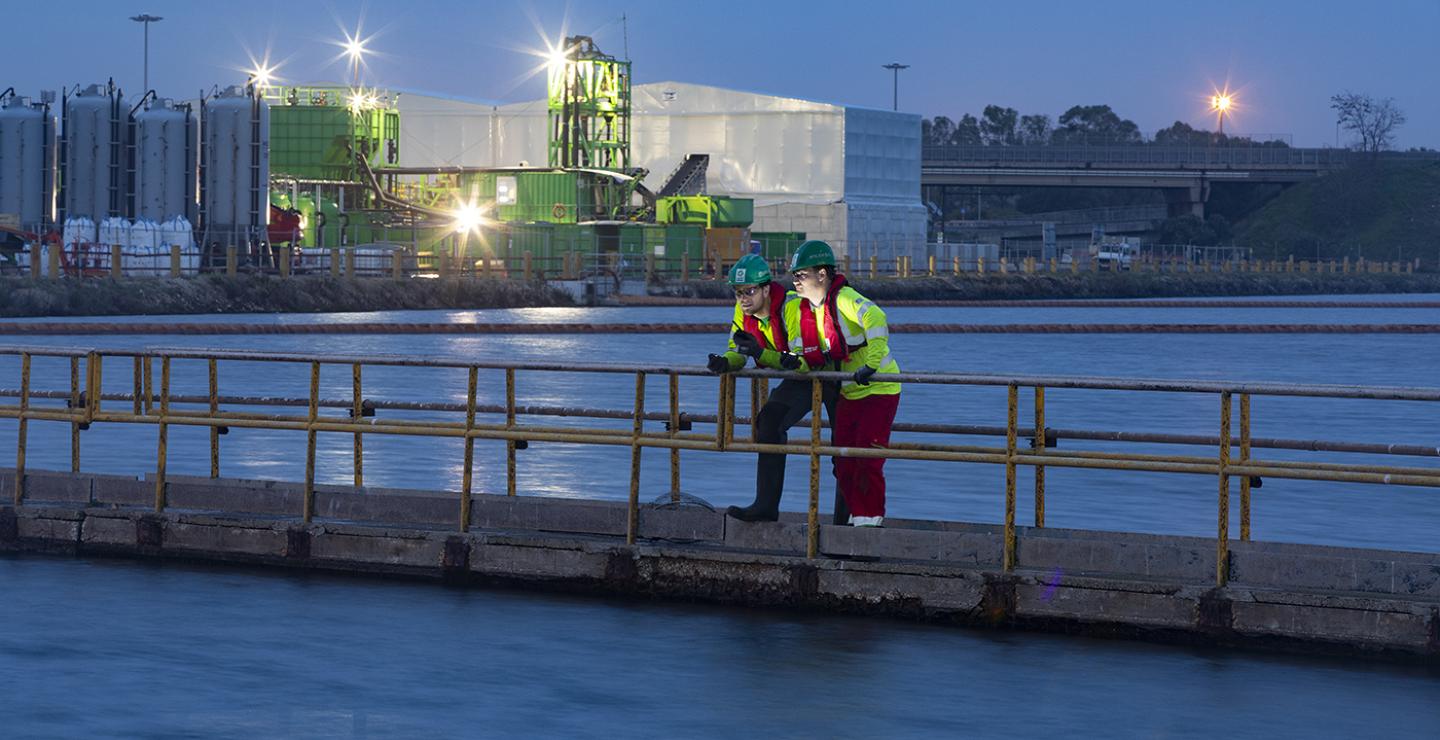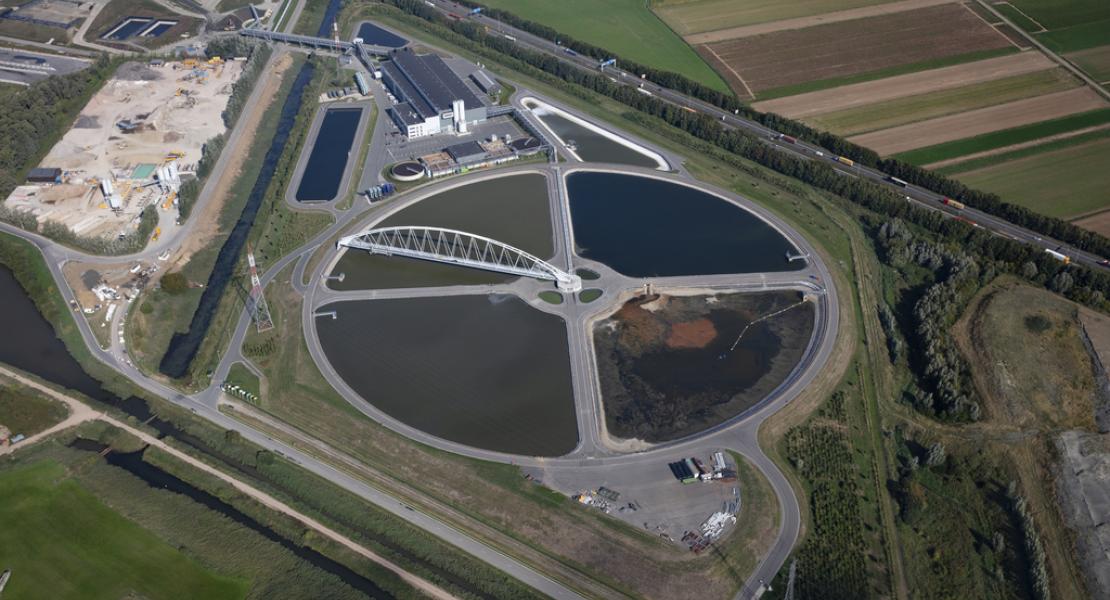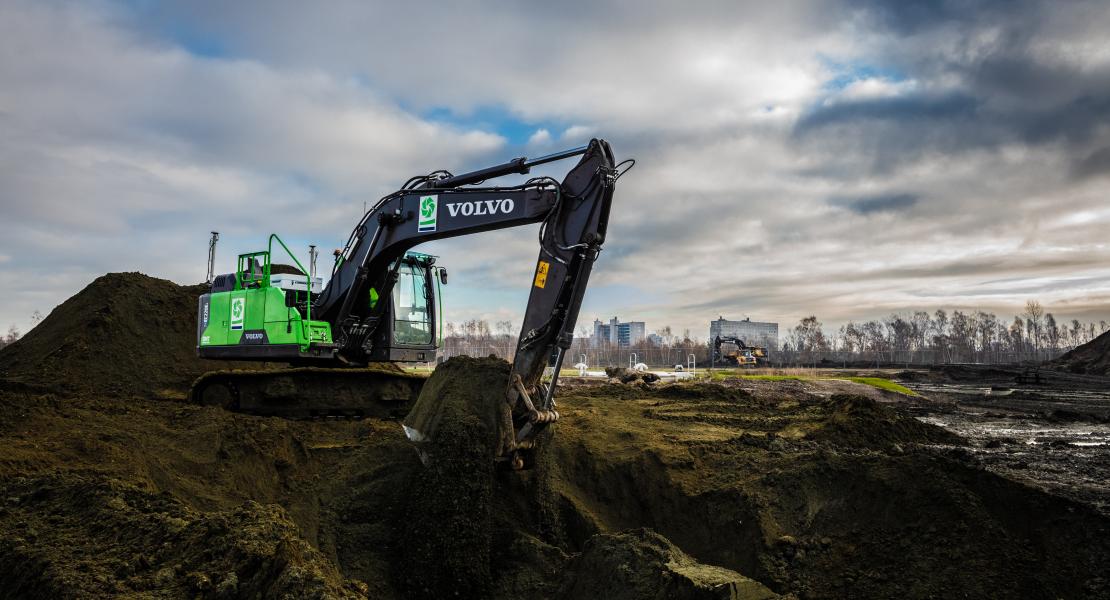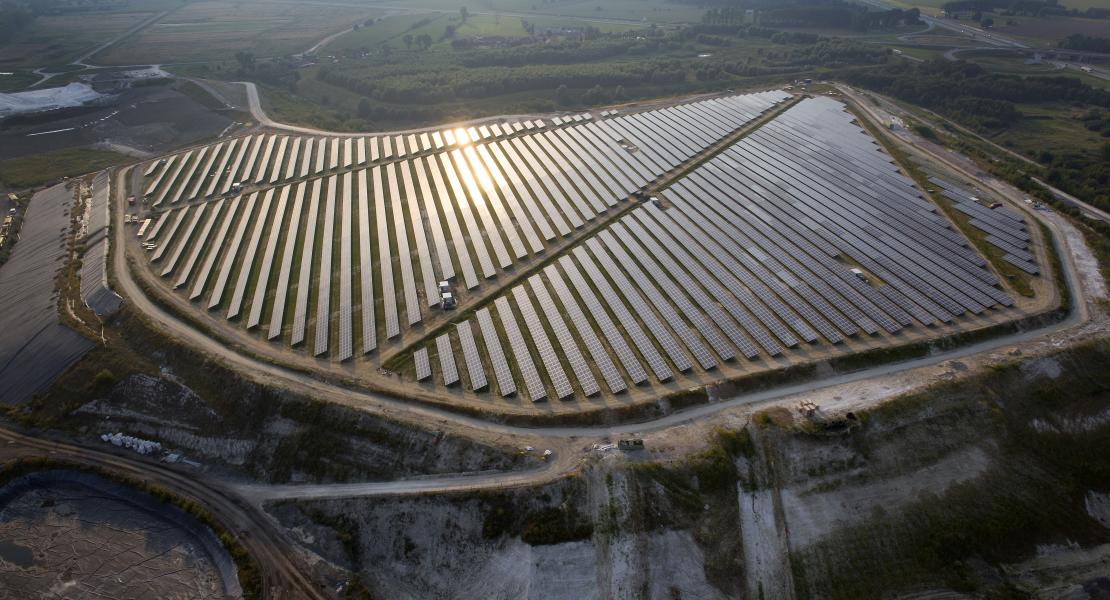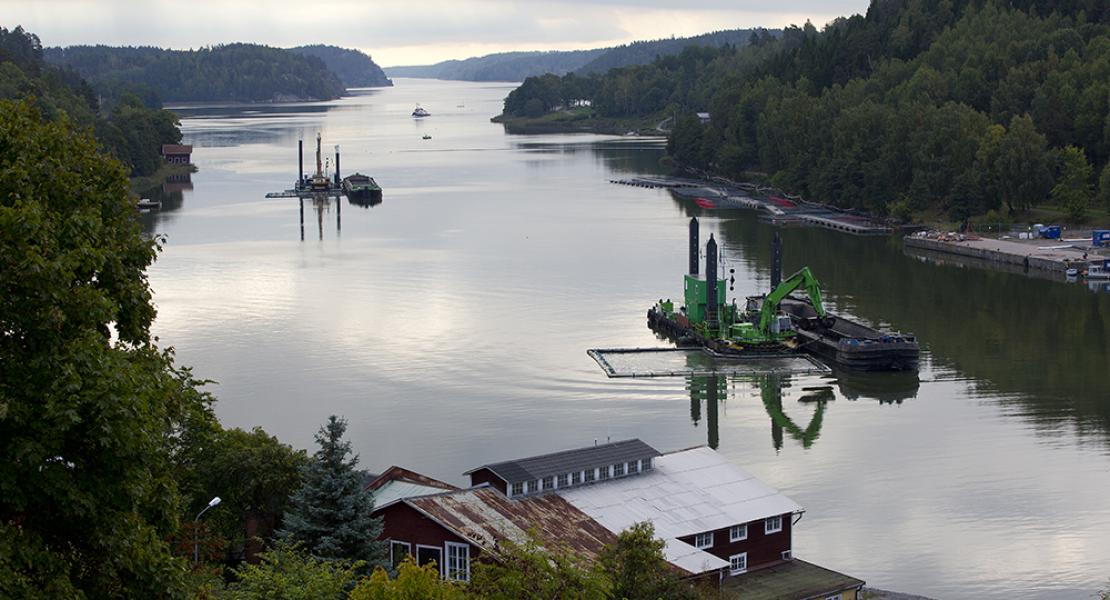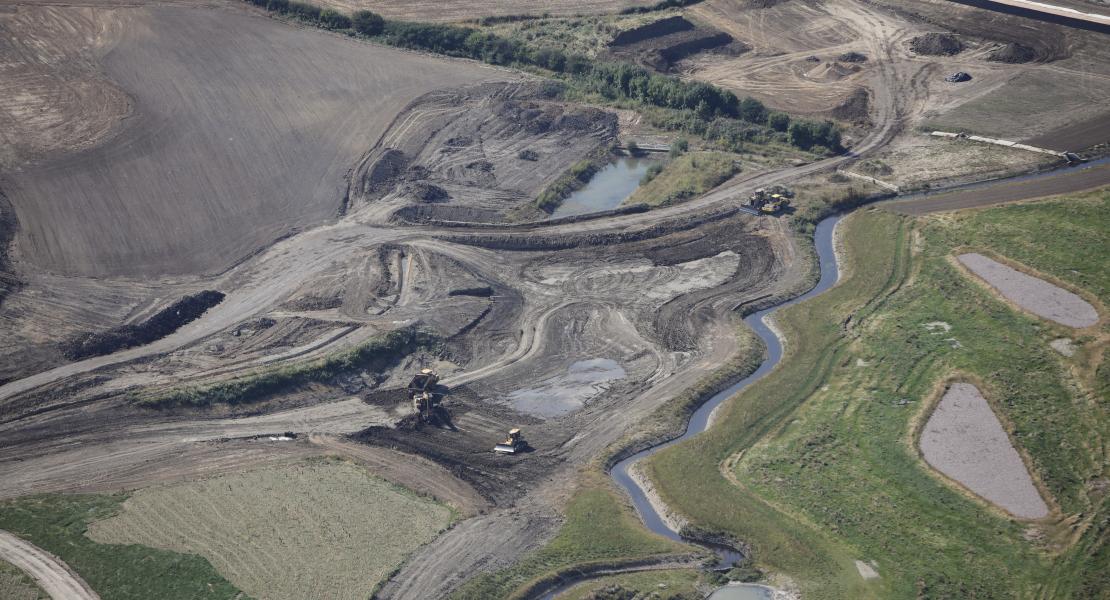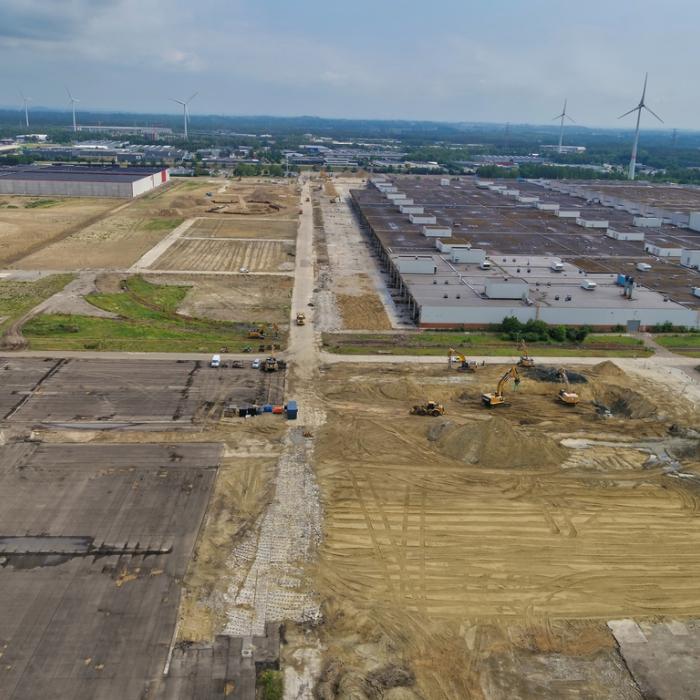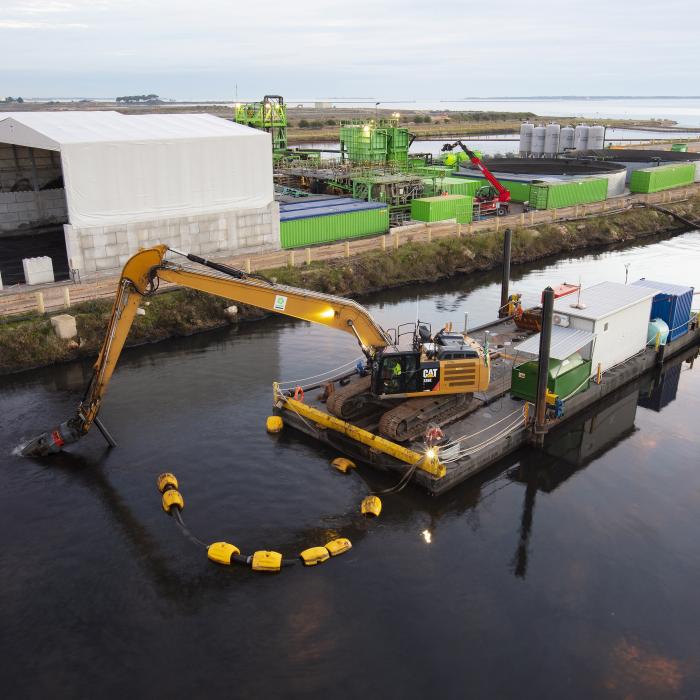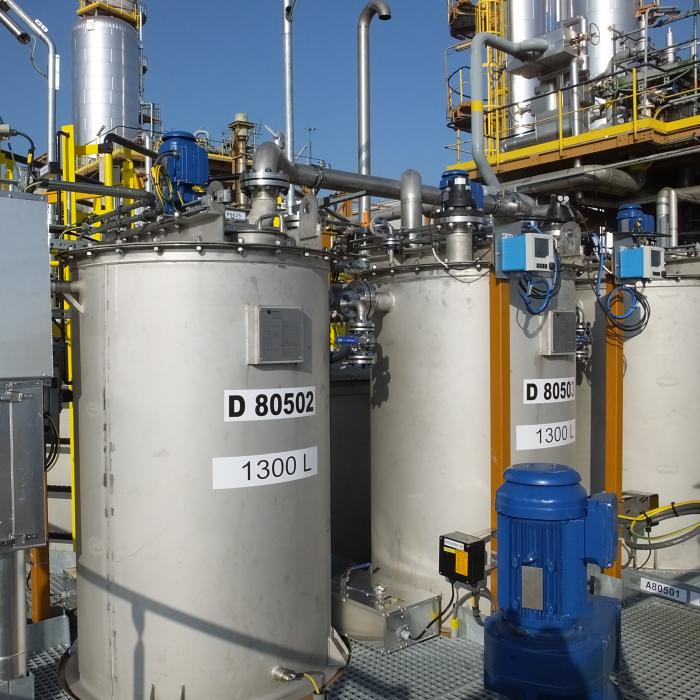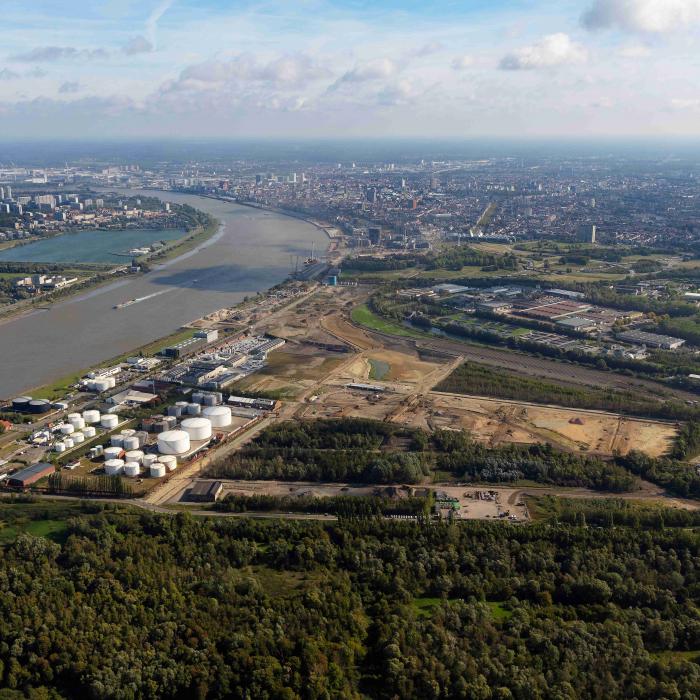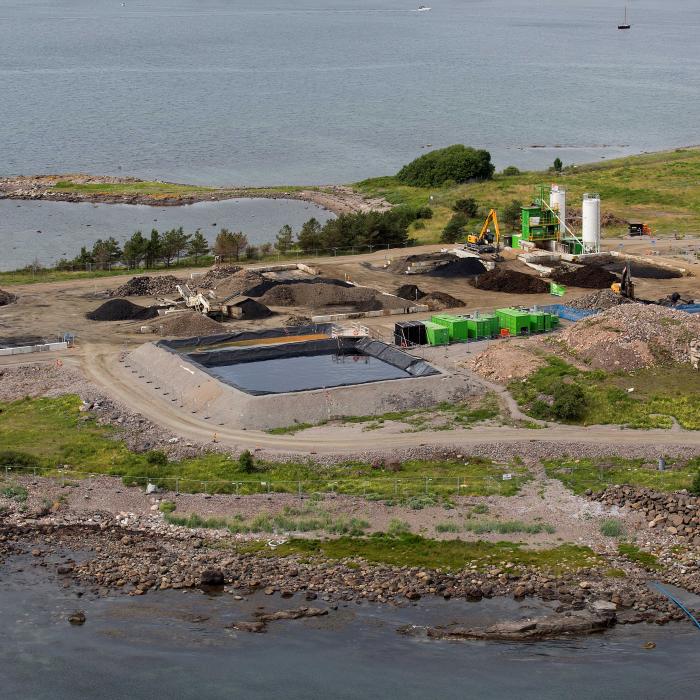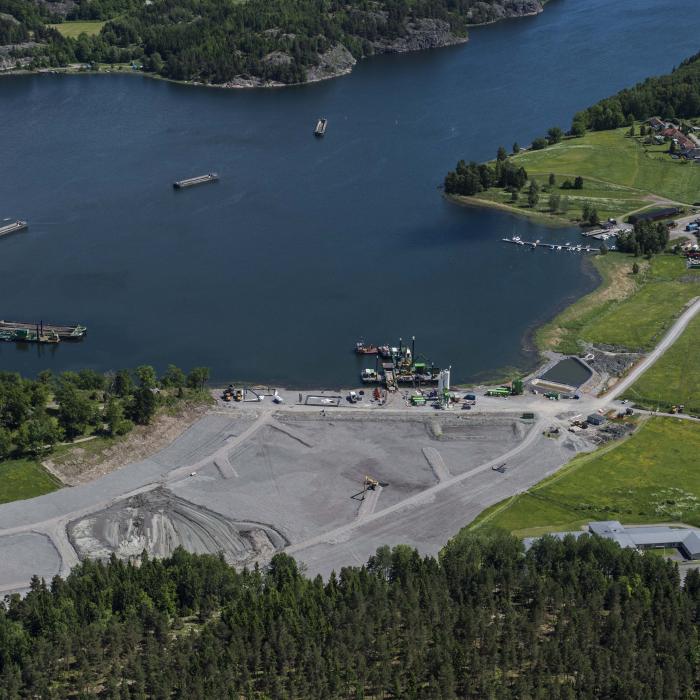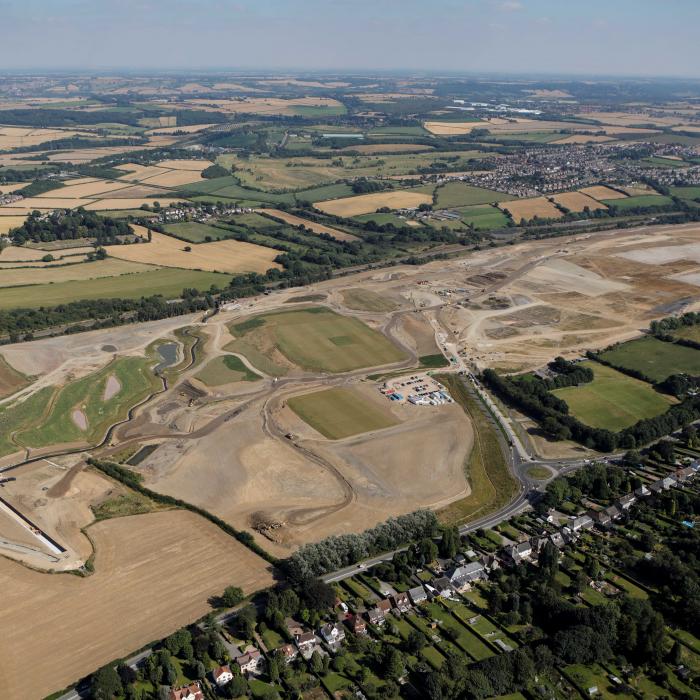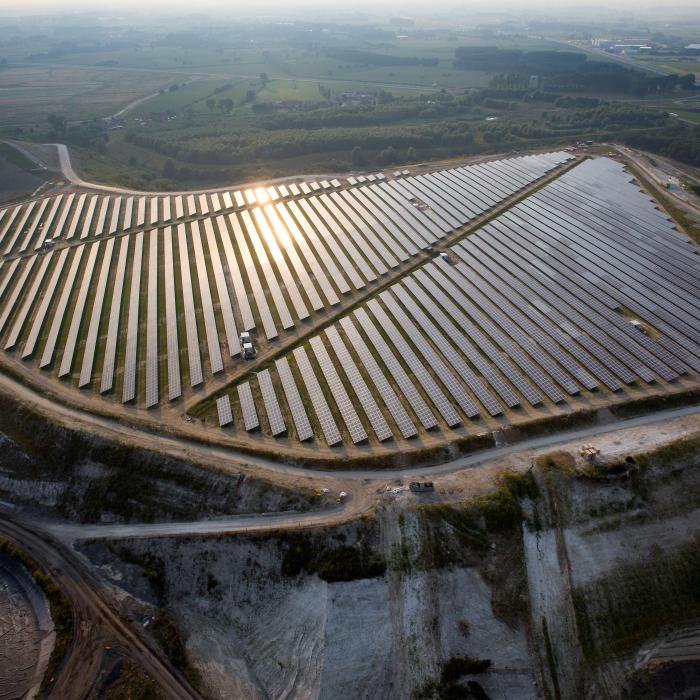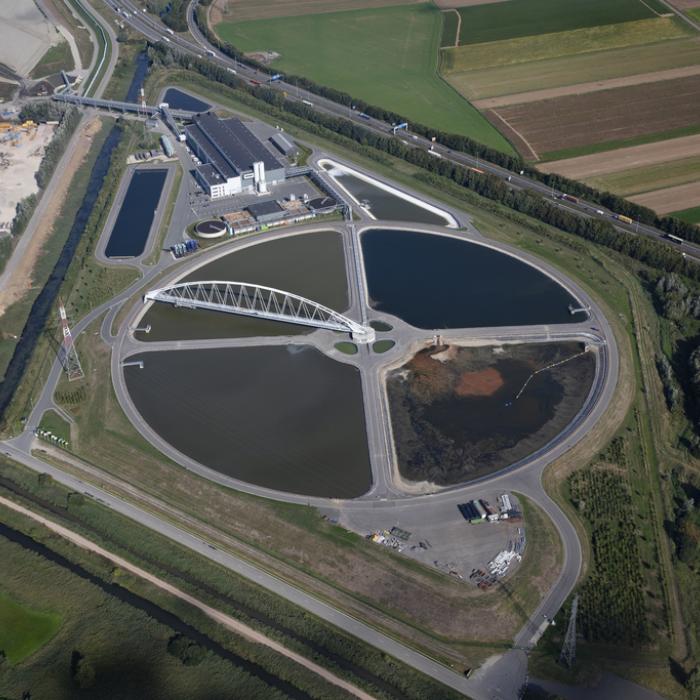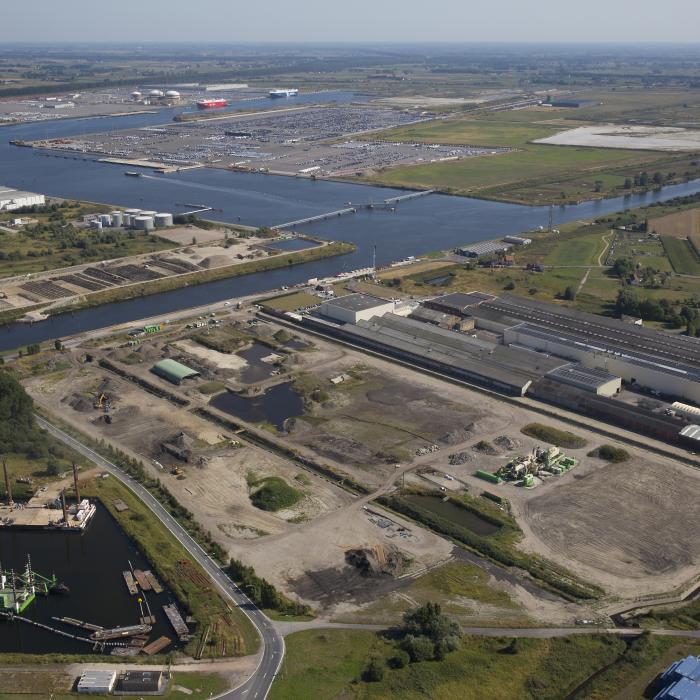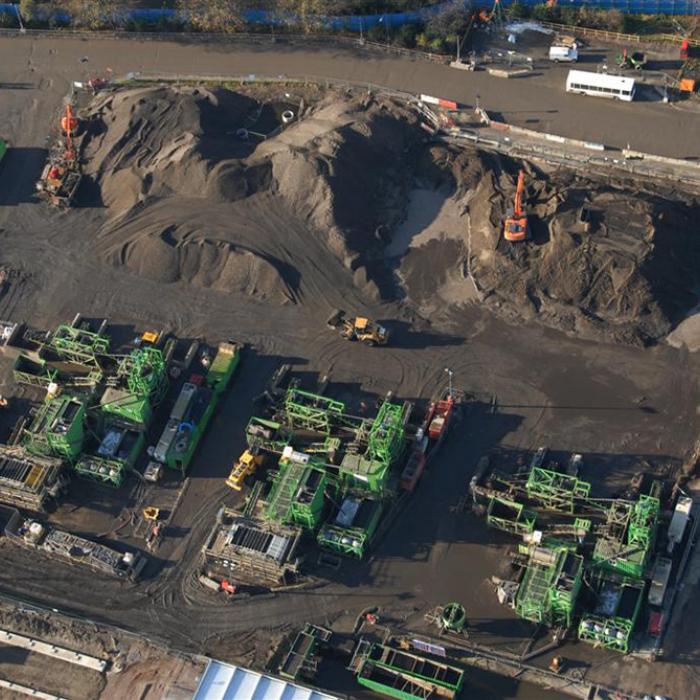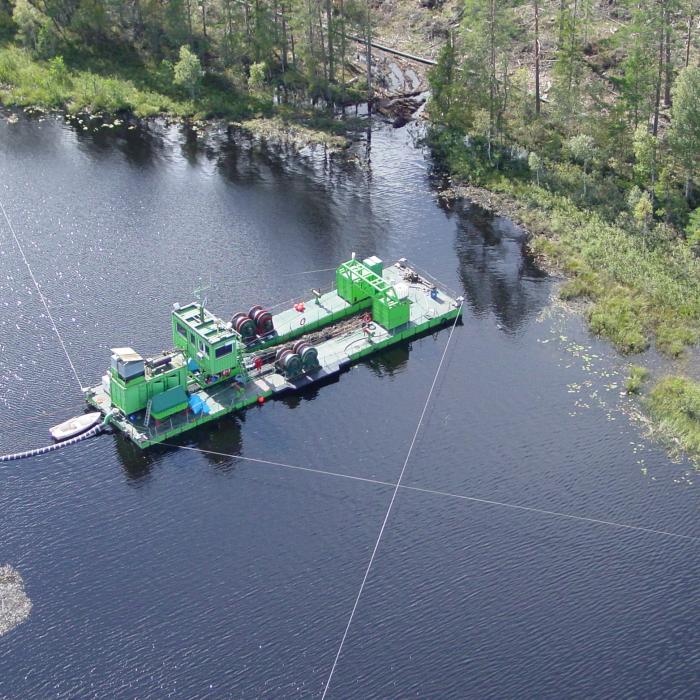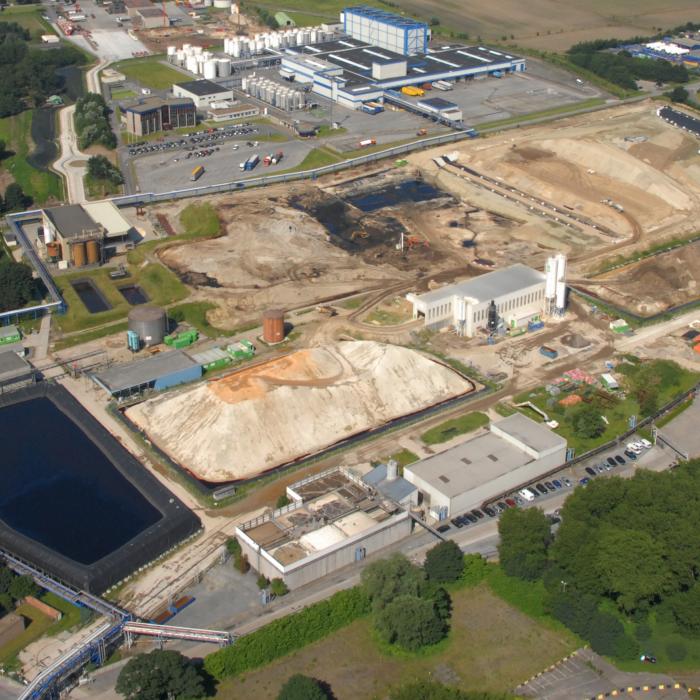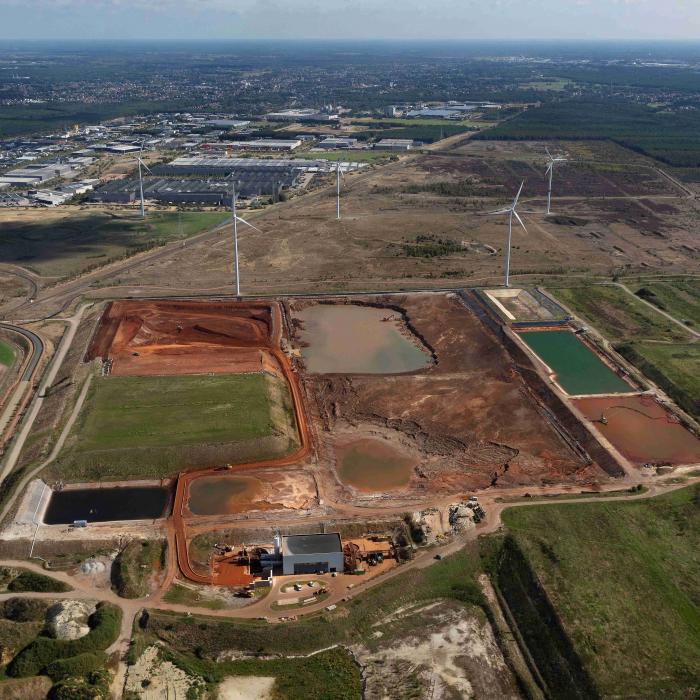Decades of expertise in sustainable remediation
Soil remediation is a core speciality of DEME and we have a leading position in this sector. More than 20 years ago we founded the most advanced soil treatment centre in Europe and now we have a network of facilities in strategic locations in Belgium and France.
We offer both tailor-made, in-situ, treatment solutions or customers can use one of our strategically located,treatment centres. In line with our sustainable goals we always aim to turn the reclaimed soil into reusable materials for construction and other purposes.
Proactive brownfield development
Our vision for a sustainable future is also reflected when it comes to brownfield site development. Brownfield sites are disused industrial areas where economic activities are severely impeded or rendered impossible due to historic contamination of the soil and groundwater. Here we take on a very proactive role in sourcing and developing potential remediation projects, alongside our development partners. DEME identifies polluted industrial sites and approaches the owners regarding the possibility of redeveloping them into new business parks, residential and recreational areas. We can provide an integrated range of solutions including polluted soil and river decontamination and treatments for soils and dredged sediments. Given the complex nature of the redevelopment of heavily polluted industrial sites, projects are often based on a design, build and finance approach.
In-situ soil remediation & Mobile treatment plants
As well as our extensive network of fixed soil and sediment recycling centres, we also offer customers the flexibility of mobile treatment plants. We have designed, developed and built a number of mobile soil washing and recycling systems that can be employed worldwide for on-site treatment and recycling of contaminated soil. This includes our mobile thermal desorption plant which is designed to handle the most heavily contaminated soils.
Our portable plants can be deployed across the globe for on-site treatment and the recycling of contaminated soil, avoiding unnecessary soil transportation and disposal costs for the customer. This is a very effective technique to remediate soil, removing a large number of organic and inorganic contaminants.
Our broad portfolio of specialist techniques enables us to offer customers a tailored solution, which could involve several techniques used in combination.
Techniques include:
- Extracting soil vapour, groundwater, floating layers or sediment layers
- Soil vapour extraction and compressed air injection into soil
- Chemical oxidation
- Bioremediation: aerobic/anaerobic
- Reactive permeable barriers
Fixed sediment and soil recycling centres for off-site soil treatment
DEME has a network of more than 15 soil treatment and recycling centres in strategic locations in Belgium and France, the largest of which can handle up to 400,000 tonnes a year. We offer a wide range of innovative and tailor-made solutions for collecting, treating and recycling dredged sediment. Our various treatment and dewatering technologies include screening, dewatering by filter presses, heavy metal stabilisation by phosphation, immobilisation, bioremediation, thermal treatment, physical/chemical soil treatment, quality control of dredged sediment, unloading, screening and management of debris, recycling and reclamation.
We have four soil and sediment treatment centres in Wallonia.
- Sedisol (Farciennes, Belgium) – This is a treatment unit for contaminated industrial and dredged sediments, which brings a concrete and durable solution to the problem of the management of polluted sludge and sediments in the Walloon Region. Sedisol uses a wide range of tested techniques: dehydration, bioremediation and chemical stabilisation.
- Cetraval (Tubize, Belgium), Petit Try (Farciennes, Belgium) and Filterres (Seraing, Belgium) are treatment units for contaminated soils. These centres mainly use bioremediation and physico-chemical technologies.
All of the treatment centres are located on waterways and, in an effort to offer sustainable solutions, we encourage companies to carry out the transport of the polluted and treated soils/sediments by water.
